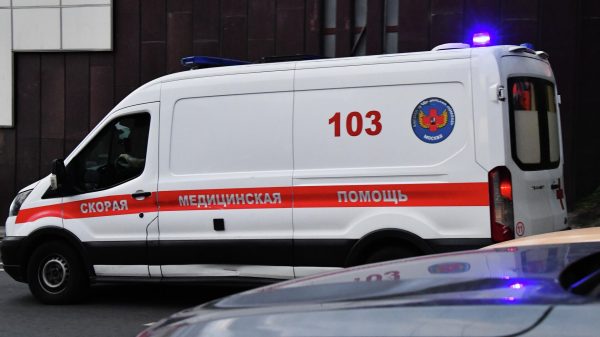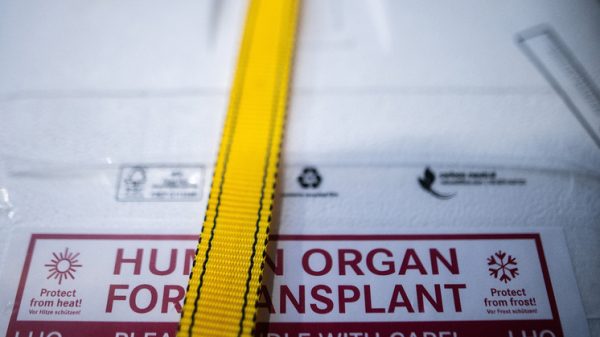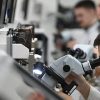
MOSCOW, November 18. Absolute resistance to all antibiotics will never occur — the microcosm itself will not allow this. This opinion was expressed in a conversation with a correspondent by the famous epidemiologist, corresponding member of the Russian Academy of Sciences, head of the laboratory of infections associated with the provision of medical care, Central Research Institute of Epidemiology of Rospotrebnadzor Alexey Tutelyan.
As a reminder, World Antimicrobial Awareness Week takes place from 18 to 24 November, and this year's theme is “Uniting to combat antimicrobial resistance.” Antimicrobials – antibiotics – are medicines used to prevent and treat infections in people, animals and plants. WHO named resistance to these drugs as one of the ten global threats to public health around the world.
According to the epidemiologist, the situation with bacterial resistance to antibiotics does not present any surprise to modern science. “Scientists warned about this back in the 50s of the last century. Even then there were the first “bells” that indicated that bacteria cannot be defeated by such crude means,” he noted.
According to him, the microcosm has two billion years of evolution behind it, while humans have “a measly few tens of thousands.” “Over the years, viruses and bacteria have gone through a lot and have long figured out how to defend themselves and respond to certain stresses, including anthropogenic pressure,” the scientist added, emphasizing that microorganisms themselves have always regulated their lives and exchanged information with each other, in including through the production of antibiotics.
“One population of microorganisms, through the synthesis of antibiotics, sends biochemical signals to other populations of microorganisms, as if agreeing with each other on certain conditions: one, relatively speaking, goes into the shadows, the other comes into the light,” the scientist explained, emphasizing the idea that antibiotics were originally invented not so much for microorganisms to destroy each other, but to improve the very existence of the microcosm.
«»There are no wars in the microcosm, but there are, as they say, good neighborly relations: everyone agrees with each other through antibiotics and a number of other factors. Of course, some specific individuals may die in this case, but in general the population slows down its metabolism and proliferation, freezes and completely voluntarily gives advantage to another population simply because its time has come,” noted Alexey Tutelyan.
The microcosm, in particular bacteria, according to him, has three types of resistance. The first is internal natural stability. For example, a bacterium has a thick cell wall through which little passes, or there is no receptor, for example, for penicillin, and therefore it does not act on these bacteria.
October 15, 09:00
Second species – genetic resistance. Genes help the microbe live in stress situations, including anthropogenic ones, which are caused by some external influence (antibiotic or disinfectant).
And the third type is intermediate, transient resistance or tolerance: bacteria, while remaining alive, fall into a kind of suspended animation, sometimes almost ceasing their vital activity. Thus, they “survive” the effect of the antibiotic, maintaining the same sensitivity to it.
“World science knows quite a lot about the first two types of resistance, mainly limiting itself to methods of bypassing such resistance, rather than overcoming it. When a bacterium has already acquired (by horizontal transfer of resistance genes from other bacteria) this resistance gene, allowing it to live surrounded by an antibiotic, which “It’s already very difficult to do something with it,” the scientist emphasized.
In addition, he recalled the existence of so-called cross-resistance, when resistance to several types of antibacterial drugs is acquired at once.
“We treat a patient with one antibiotic, but in the end he develops resistance to another, then to a third drug… Therefore, it is necessary to influence this difficult situation at earlier stages, when the bacteria are in a state of transient resistance, that same anabiosis or persistence, and only they begin to “think” about what kind of misfortune befell them, in this case an antibiotic… They go through in their memory (and they have an excellent memory) ways to evade destruction and, of course, very quickly find it,” said epidemiologist, emphasizing that preventing resistance is much easier than then fighting resistant microorganisms.
According to him, in a real clinical situation, the reproduction of a small number of these microorganisms that survived or, in other words, adapted to the lethal stress effects, can lead to a recurrence of the infectious disease and the development of reinfection. Therefore, blocking the ability of bacteria to adapt to the damaging effects of antibiotics is one of the promising ways to overcome this situation, the scientist believes.
Alexey Tutelyan claims that in the microcosm there have always been bacteria that are resistant to a wide range of antibiotics. However, the epidemiologist is confident that this is a very specific and ambiguous situation for the bacterium. As an illustration, the expert suggested imagining a modern soldier…
“He has a bulletproof vest, a helmet, a machine gun… He carries 40 kilograms of equipment that is impossible to throw. But if he is released into the ordinary human population with all this ammunition, it will be very difficult for him to live, for example, running on the beach or swimming in the sea. It’s the same with resistant bacteria: they are super-adapted for life in an aggressive environment, they have a set of various factors (virulence, resistance, pathogenicity, etc.), the presence of which requires huge energy expenditure from the bacteria,” the scientist noted.
At the same time, he added that it is difficult for him to imagine humanity consisting entirely of special agents; even in science fiction works, people of a specific population or area of residence possessed such abilities. “The situation is similar with microorganisms: for the microcosm as a whole, it is biologically unprofitable for the entire energy reserve of the population to be directed to maintaining resistance, so universal resistance will never occur,” he summarized.






















































Свежие комментарии